Why does Russia support Syria and President Assad?
- Published
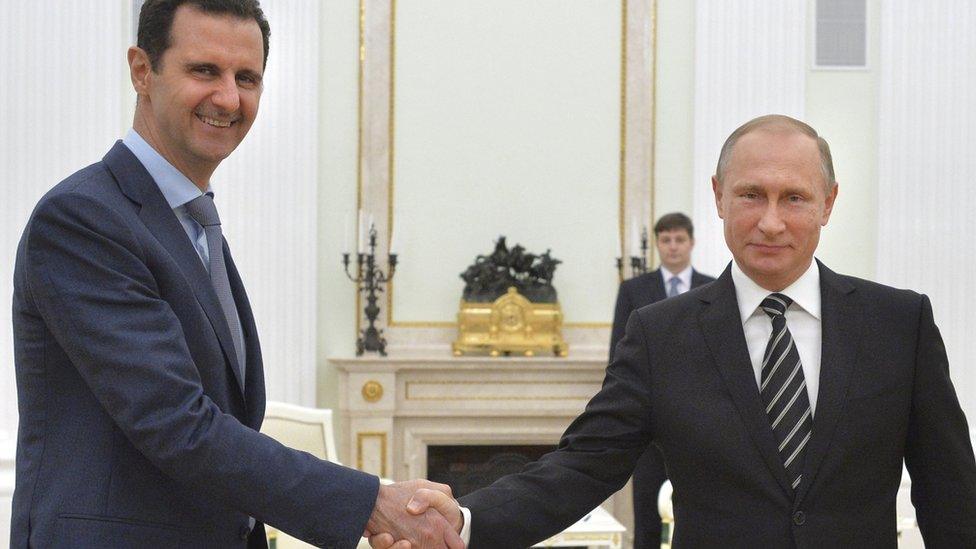
President Bashar al-Assad (left) and Vladimir Putin
A number of countries are trying to pressure Russia into distancing itself from Syrian President Bashar al-Assad.
This comes after a suspected chemical attack killed 80 Syrian people in a town held by anti-Assad rebels last week.
But at the moment, Russia is not dropping its support for pro-Assad forces.
So how did Russia get involved in the six-year Syrian war in the first place - and why is it so important to them?
Who is involved in the conflict?
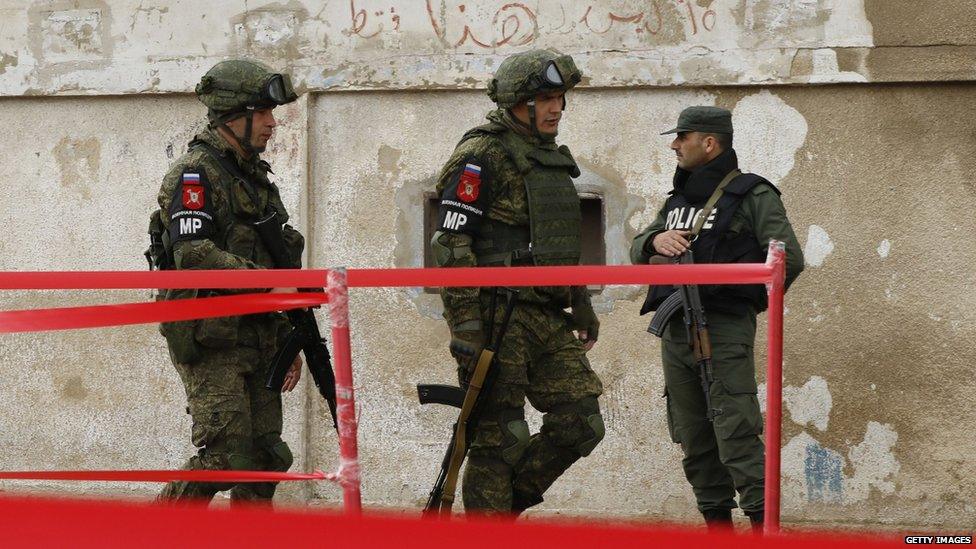
Members of the Russian military police walk past a Syrian regime soldier in the Syrian city of Homs
The first thing to say is that the situation is extremely complicated; it's not as simple as one side against the other.
The main sides in the Syrian conflict are:
President Assad's official Syrian army (which receives military backing from Russia)
So-called Islamic State (IS)
Other Syrian rebels: these are lots of different groups with different aims, including some groups supported by al-Qaeda, and other groups which are supported by the West
In theory, Russia is there to fight against IS. But in practice, they also attack other anti-Assad rebels, some of which are also backed by the West.
How did Russia get involved in Syria?
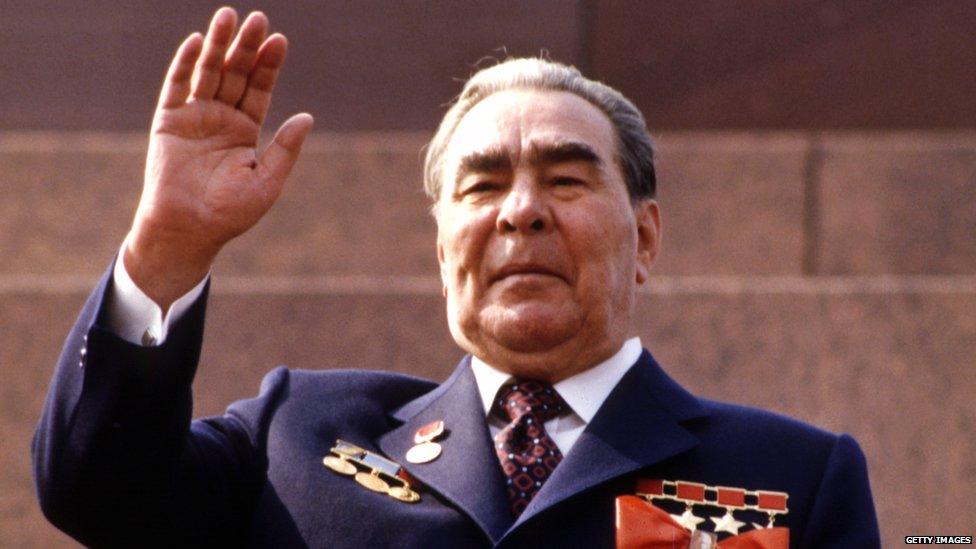
Leonid Brezhnev was leader of the Soviet Union in the 1970s
The story goes back at least to Cold War times, when the Soviet Union gained influence in Syria in the 1970s, giving aid and arms.
But after the collapse of the Soviet Union in the 1990s, its influence in Syria reduced.
In 2000, Vladimir Putin became president of Russia and Bashar al-Assad became president of Syria.
They did not have a close relationship, but in the mid-2000s, Putin began to expand the Russian military.
"Putin began to think about developing Russia as a great power again," says Richard Reeve, director of the Sustainable Security Programme at the Oxford Research Group, a security think-tank.
Russian ties with Syria began to strengthen because of their previous Cold War relationship.
The role of the Arab Spring
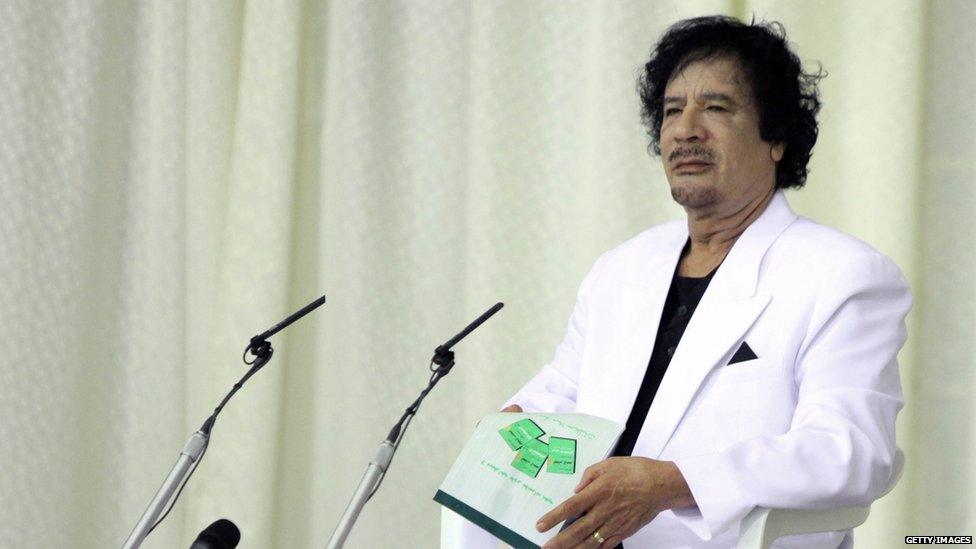
Muammar Gaddafi was the leader of Libya until he was overthrown in 2011
Russian support in Syria increased dramatically when the Arab Spring - a series of uprisings across the Middle East - began in 2011.
Libya overthrew their long-term leader, Muammar Gaddafi, in 2011, "which Russia saw as directly undermining its influence in the Arab world," says Mr Reeve.
"Russia had a long-term relationship with Gaddafi and had several billions dollars' worth of arms sales pending to Libya," he adds.
As a result, President Putin started to look for allies elsewhere in the region.
"They were thinking not in the interests of Syria, but in their own interests," says Margot Light, professor emeritus in international relations at LSE.
"I don't think that they have a genuine belief in Assad."
Flexing their military muscle
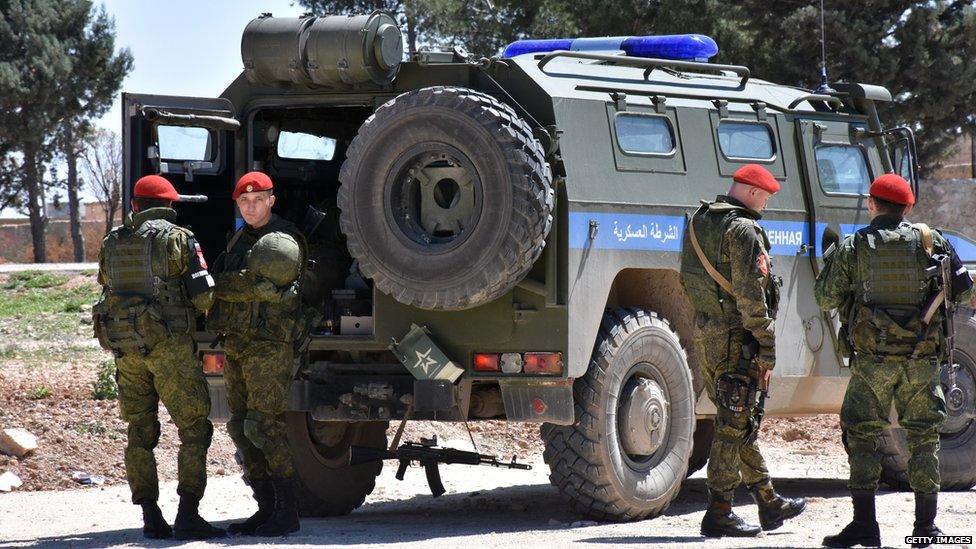
Members of the Russian military police stand guard in the Syrian city of Manbij
This conflict is the first time Russia has really been able to test out the capabilities of its newly-expanded military.
"It's basically a theatre to test out their military equipment and doctrine," says Mr Reeve.
"This gives the military real war experience - for their own confidence - and it sends a message to the rest of the world that Russia is a capable, modern military player.
"Also, it shows those weapons in action to potential customers."
Those customers, Richard Reeve says, might include future governments in Egypt, Libya and Iraq.
Russia's role on the global stage
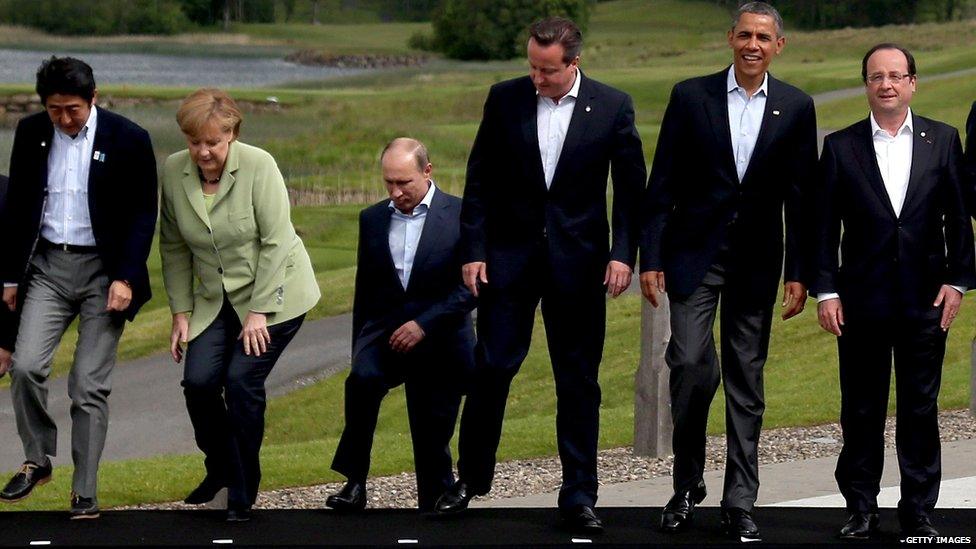
(L-R) Shinzo Abe, Angela Merkel, Vladimir Putin, David Cameron, Barack Obama and Francois Hollande at a G8 summit in 2013
Russia's involvement in the Middle East is also partly so that they have a say in major world events, says Prof Light.
"If you wanted to negotiate some end to the conflict, you couldn't disregard Russia's views on how that conflict should be settled," she says.
"It's part of this determination, by Putin mostly, to show that Russia is a strong power that has to be reckoned with."
She also says that "the Middle East is closer to Russia than it is to us [in the UK], or the USA - so they find unrest there a security threat".
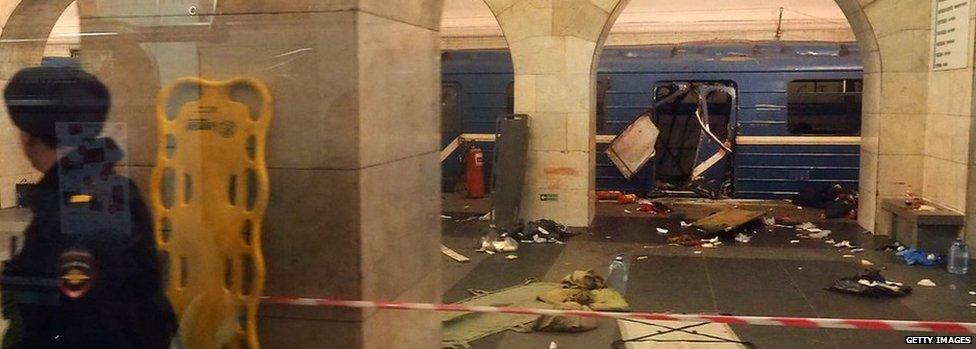
Prof Light says Russia would want to avoid Islamist-related attacks on home soil, such as the bomb on the St Petersburg metro on Thursday
She suggests that this may be partly because they are worried about the potential effects the conflict will have on the large Muslim population in Russia.
Some Russian Muslims have gone to Syria to fight for IS and other anti-Assad forces - but not for Assad.
"They are very worried about them [Muslim Russian rebel fighters] infiltrating back into Russia," Prof Light says.
"They don't want them back in Russia. They want to kill them."
What about the future?
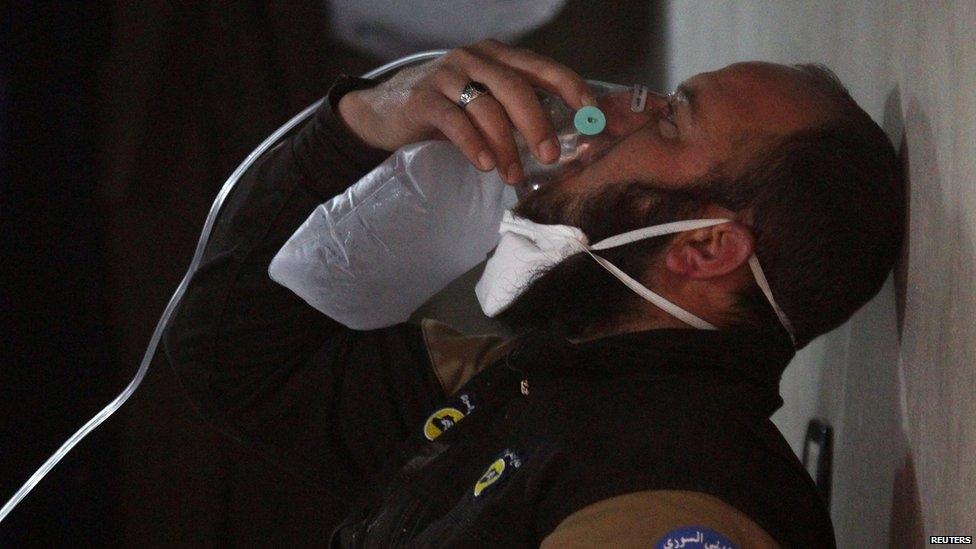
A civil defence member breathes through an oxygen mask, after a suspected gas attack in the town of Khan Sheikhoun in rebel-held Idlib, Syria
Mr Reeve doesn't see Russia backing down any time soon, despite Assad being accused of using chemical weapons on his own people - a charge which his government strongly denies.
"I think they've committed so hard to backing Assad that it will be very difficult for Russia to disengage from that at the moment," he says.
"It's probably quite embarrassing for the Russians that Syrians have used chemical weapons."
Prof Light says: "Assad was winning the war without [using chemical weapons].
"It just seems so stupid an action that it is difficult to understand - and I'm sure the Russians have difficulty understanding it. I'm sure they are extremely displeased by it."
But she says that the West's response to the suspected chemical attacks - calling for Russia to withdraw their support for Assad - may actually have the opposite effect.
"They are not going to do what we tell them."
Find us on Instagram at BBCNewsbeat, external and follow us on Snapchat, search for bbc_newsbeat, external